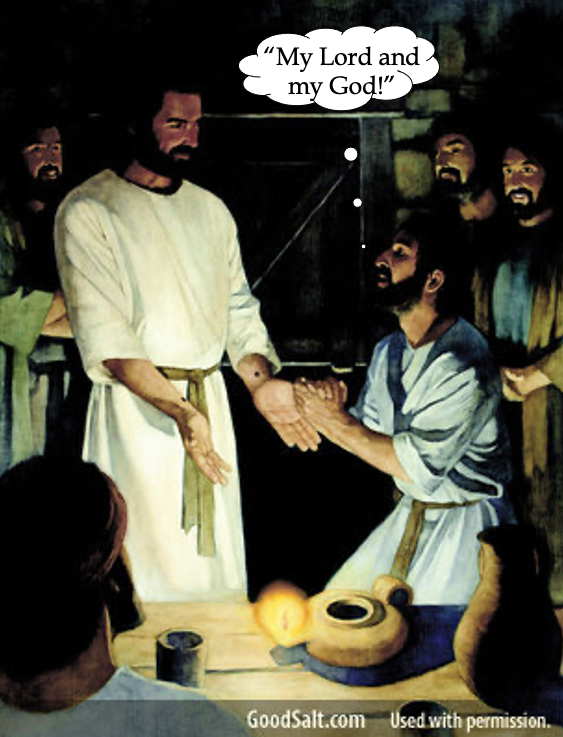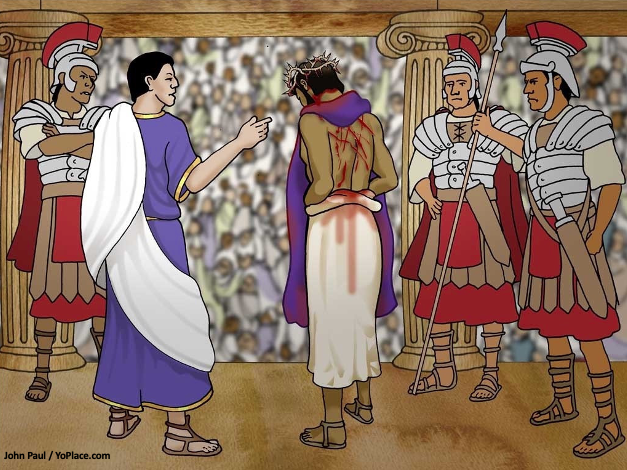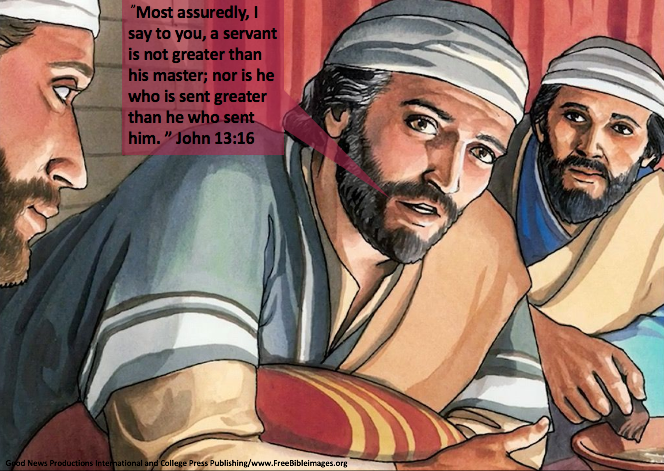“Beloved, now we are children of God; and it has not yet been revealed what we shall be, but we know that when He is revealed, we shall be like Him, for we shall see Him as He is.” I John 3:2
The apostle John has just spoken about how a born-again person can make himself visible by practicing righteousness (2:29). The thought of new birth brings an exclamation of wonder from John: “Behold what manner of love the Father has bestowed on us, that we should be called children of God! Therefore, the world does not know us, because it did not know Him.” (I John 3:1). When John uses the word for “Behold” (Idete), he is saying to “stop whatever you are doing and pay attention” 1 to or “look with wonder at the amazing love that God has toward us in that we should be called His children.” The Greek word for “what manner of” (potapēn) sometimes conveys a sense of intensification, like “how great,” “how wonderful,” or “how glorious.” 2John wants us to pause and focus on how glorious the love of God toward us is. 3
God “the Father” expressed His “love” toward us by placing us in His family the moment we believed in Jesus “that we should be called children of God!” (cf. John 1:12). Believers in Jesus are “called children of God” because they are born-ones (tekna) of “the Father.” 4 If we see a child of God manifesting Christ’s righteous behavior (2:29), we can look at him as the recipient of God’s marvelous love (3:1a).
Few verses in the Bible are as beautiful as this one. For believers to experience victory in their Christian lives, they need to know Who their Daddy is! God is their perfect heavenly Father, and He does not share any of the failures or weaknesses of their earthly fathers. In addition, He is the King of creation which makes us royalty. 5
“John is slowly getting around to the new nature we have in Christ. He is saying that God’s nature is righteous. So, we can be born of God and share in His nature. We can be righteous. It stupefies John that God would love us enough to let us share in His nature. This is the same nature that came into Mary in the form of Jesus and was born on Christmas. Part of this same divine nature was passed along to us at new birth. It has changed our entire character and make-up. Now we are truly the children of God. That’s who we really are.” 6
It is an awesome privilege to be called God’s child. When we stop to ponder our new identity in Christ – that we are God’s children – it will take our breath away. When you believe in Christ, you are born of God and share in His divine righteous nature (cf. John 1:12; I John 2:29; 3:9; 5:1). At the core of your being you are God’s child no matter what you or others do, say, or think.
Many of us may believe the lie that says, “I am what I do.” We tell ourselves that what I do determines who I am. So, if I sin, I must be a sinner. What Satan, the father of lies (John 8:44), tries to do is deceive us to believe this lie. Hence, when I sin, he whispers the lie that I am a sinner so I will perceive that sin is the normal and natural outgrowth of who I truly am at the core of my being. But listen to what God says: “We know that whoever is born of God does not sin; but he who has been born of God keeps himself, and the wicked one does not touch him” (I John 5:18).
Our born-again self (“whoever is born of God”), John tells us, “does not sin.” Sin can never be traced back to my new identity in Christ. At the core of my being, I am now God’s dearly beloved child through faith alone in Christ alone (I John 5:1; cf. John 1:12). I am defined by what God says about me, not by what I do. Satan cannot “touch” or defeat our born-again nature (I John 5:18). This is important to remember especially after being humbled by our sinful failures.
The evil one would like to trick us into thinking that we are not really God’s children after we have failed, thus leading us into more failures. But if we know and embrace the truth found in I John 3:1 and 5:18, we can avoid the devil’s deception, and rise from our confession of sin to the Lord (cf. I John 1:9) knowing we are the same inwardly holy children we were before we sinned.
God is righteous and we can now share in His righteousness. This new birth has changed who we are. We are now God’s child having been begotten by Him. However, it should not take us by surprise when the world looks at us and fails to perceive that we are children of God. Why? Because the world did not “know” (ginōskō) Christ (or God the Father) experientially, 7 they cannot recognize His children either (I John 3:1b). Since they do not know the Divine Parent, they do not know His children either. 8
The world does not know what it is like for a Christian to be given a new righteous nature from God because the world has not experienced God in this way. Anderson explains, “Until someone has experienced the new birth, it’s even hard to explain what it is like to have this new nature within. But in verse two John goes on to explain that one day this new nature is the only nature that we will manifest.” 9
“Beloved, now we are children of God; and it has not yet been revealed what we shall be, but we know that when He is revealed, we shall be like Him, for we shall see Him as He is.” (I John 3:2). The word “Beloved” (agapētoi) connects back to the thought of verse one where Christians are described as the recipients of the glorious love of God the Father who regards them as His children. 10 Verse two informs us that believers in Jesus now have a new spiritual nature (“now we are children of God”) that is invisible to the world (“it has not yet been revealed what we shall be”).This suggests that there is no physical transformation from the new birth.
Believers in Christ will not undergo a physical transformation which outwardly manifests their spiritual birth until Jesus “is revealed.” The word translated “revealed” (phaneróō) twice in this verse is also the same word translated “appears” (phanerōthē) in I John 2:28. When Jesus “appears,” what believers “shall be” will “appear” too. Since “we shall be like” Christ physically when He returns for His church (cf. Phil. 3:20-21),Christians do not want to “be ashamed before Him” now (2:28; cf. 4:17-19). 11
The reason we “shall be like” Jesus physically when He appears is because “we shall see Him as He is.” The moment we see the Lord Jesus in all His glory when He returns in the air for His church, our sinful nature will be taken away and Christ will automatically transform our physical bodies into the likeness of Christ’s glorious resurrection body (Phil. 3:20-21; I Cor. 15:51-54). 12
Could anyone but God miraculously transform a person physically into His own glorious likeness who looks at Him? This argues for the deity of Jesus Christ. If Jesus were a mere human, how could He miraculously transform another human being into His glorious likeness!?! It would not happen. But the fact that Christ is God (I John 5:20; cf. John 1:1; Titus 2:13) explains how seeing Him when He returns in glory can change us physically into His own glorious likeness.
Looking at a mere human being does not change our physical bodies. If I was to behold President Biden or evangelist Franklin Graham in person, my physical body would not be changed into their likeness. There is no human being on earth that could do that to us. But Jesus Christ can and will when He returns for His church at any moment because He is Lord of all!
Such a transforming look agrees with what Paul taught about our present spiritual transformation which takes place as we behold Christ’s glory in the Scriptures: 13 “But we all, with unveiled face, beholding as in a mirror the glory of the Lord, are being transformed into the same image from glory to glory, just as by the Spirit of the Lord.” (2 Cor. 3:18). In the context, the “mirror” Paul has in mind is the Scripture (2 Cor. 3:12-16; cf. James 1:21-25). As a Christian approaches the Bible openly with the eyes of faith (“with unveiled face”), he or she sees the reflection of Christ’s glory in the “mirror” of the Bible which transforms him or her “from” one stage of Christ’s “glory to” to the next stage of Christ’s “glory” through the power of God’s “Spirit.” 14
“Can you think of anything more wonderful than seeing Jesus? We have sung about Him, talked about Him, studied about Him, communicated with Him, but the grand climax will be when we see Him.” 15
The prospect of being physically transformed into the glorious likeness of the Lord Jesus Christ when we see Him at the time of His appearing can have a purifying effect on a Christian’s life now. John writes, “And everyone who has this hope in Him purifies himself, just as He is pure.” (I John 3:3). One of the best ways for Christians to purify themselves from sin now is to focus on “this hope” of Christ’s return at any moment and the accompanying physical and spiritual transformation that will occur with it.
Anderson writes, “That John speaks of this hope as a purifying hope is one of the reasons we believe the rapture will occur before the Tribulation begins. If the rapture takes place after the Tribulation, as many teach, I could wait until the middle of the Tribulation to start cleaning up my act. I could just wait around until the Man of Sin reveals himself, and then I could start getting serious about my Christian life. After all, I could count the days until His appearing. It will be 1260 days from the revelation of the Antichrist.
“No, we believe the NT teaches Christ can come for His bride at any moment. We don’t know when that will be.” 16
To illustrate this, let’s say you are a close friend of President Biden and he said he planned to drop in to see you on one of his frequent trips to Delaware. You ask, “Do you know when that will be?” “Why?” he asks, “Well, I want to make sure the house is clean when you come.” “Oh,” he says, “Well I want to surprise you. Just keep it clean.” 17 That’s what the apostle John is saying in I John 3:2-3.
The promise that Jesus Christ could return for His church at any moment is one of the greatest reasons for us to live for Jesus now. Focusing on Christ’s any-time-return “purifies” us inwardly so we can have confidence and not be ashamed before Him when He appears.
Prayer: Precious heavenly Father, thank You for the amazing way You have given Your love to us by declaring that at the core of our being we are Your dearly loved children no matter what we or others say, think, or do. Since we are Your children, we have all we need (Your nature, Your Spirit, and Your Word) to manifest Your righteous and loving nature. The world does not know what it is like for us to be given a new spiritual nature because they have not experienced You in this way. The day is coming, however, when we will undergo a physical transformation which outwardly manifests our spiritual birth at the time of Christ’s coming for His church. Help us focus on this hope of Christ’s return at any moment which purifies us inwardly from sin now so we can have confidence and not be ashamed before Him at His coming. Lord God, please lead us to those without Christ so we may share the gospel with them so they may believe in Him for His gift of eternal life. Then they too can prepare to face Christ with confidence at His coming. In the mighty name of Jesus Christ, we pray. Amen.
ENDNOTES:
1.Walter Bauer, A Greek-English Lexicon of the New Testament and Other Early Christian Literature: Third Edition (BDAG) revised and edited by Frederick William Danker (Chicago: University of Chicago Press, 2000 Kindle Edition), pg. 720.
2. Ibid., pg. 856.
3. David R. Anderson, Maximum Joy: I John – Relationship or Fellowship? (Grace Theology Press, 2013 Kindle Edition), pg. 137.
4. Zane C. Hodges, The Bible Knowledge Commentary Epistles and Prophecy, Editors John F. Walvoord and Roy B. Zuck (David C. Cook, 2018 Kindle Edition), Kindle Location 3780.
5. Tony Evans, CSB Bibles by Holman, The Tony Evans Bible Commentary (B & H Publishing Group, Kindle Edition, 2019), pg. 2941.
6. Anderson, pp. 137-138.
7. The Greek word translated “know” (ginōskō) refers to experiential knowledge (see Archibald Thomas Robertson, A. T. Robertson’s Word Pictures in the New Testament [with Bible and Strong’s Numbers Added!], 6 Volumes (E4 Group, 2014 Kindle Edition), Kindle Location 205650 to 205667.
8. Tom Constable, Dr. Constable’s Notes on I John, 2022 Edition, pg. 69.
9. Anderson, pg. 138.
10. Zane C. Hodges, Robert Wilkin; J. Bond; Gary Derickson; Brad Doskocil; Dwight Hunt; Shawn Leach; The Grace New Testament Commentary: Revised Edition (Grace Evangelical Society, Kindle Edition, 2019), pg. 594.
11. Ibid.
12. Ibid.
13. Ibid.
14. See Zane C. Hodges’ helpful discussion on 2 Corinthians 3:18 in his book Six Secrets of the Christian Life (Corinth, TX: Grace Evangelical Society, 2016 Kindle Edition), pp. 15-19.
15. Constable, pg. 70 cites J. Allen Blair, The Epistles of John: Devotional Studies on Living Confidently (Neptune, N.J.: Loizeaux Brothers, 1982), pg. 92.
16. Anderson, pp. 138-139.
17. Adapted from Ibid., pg. 139.






